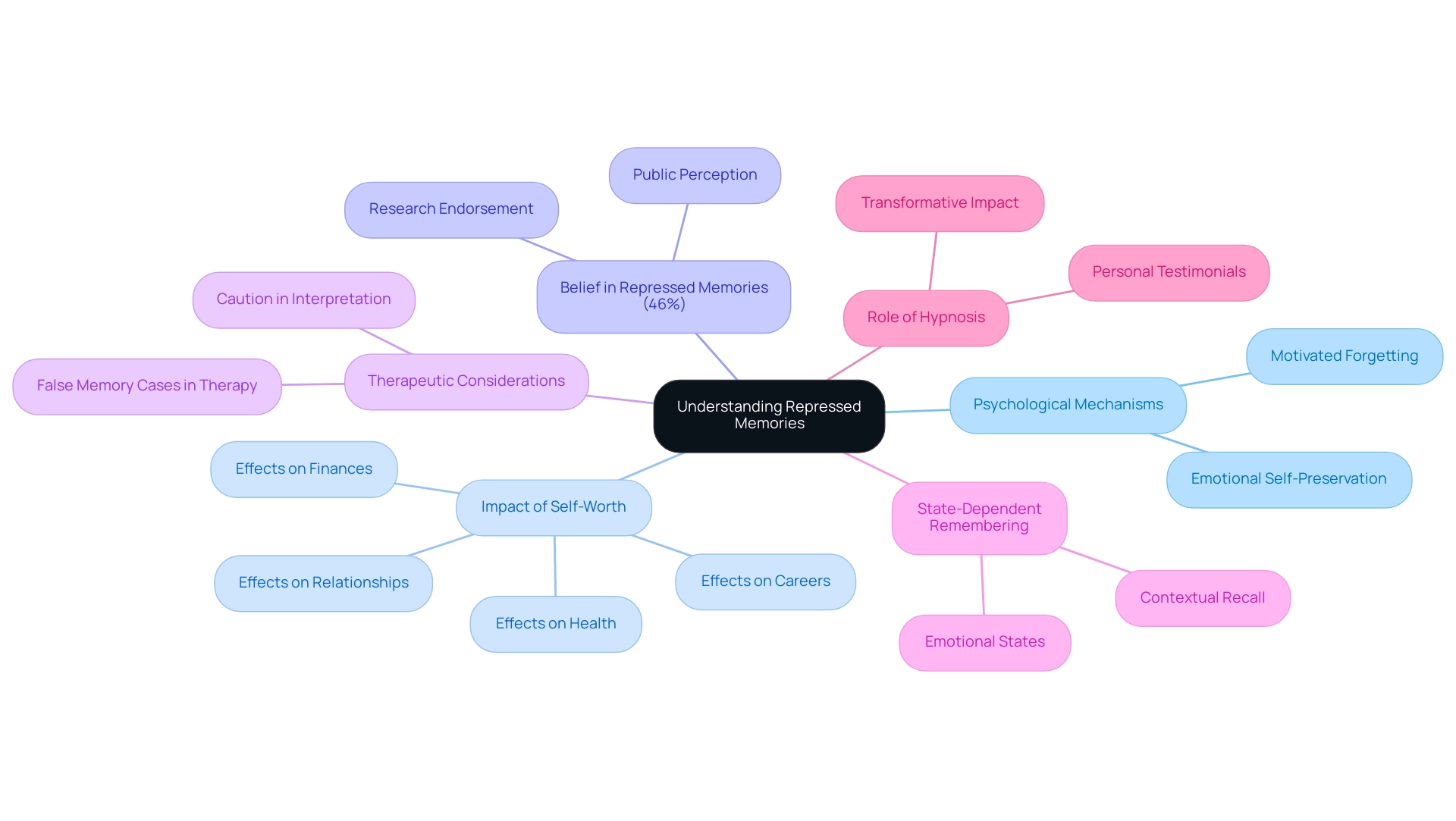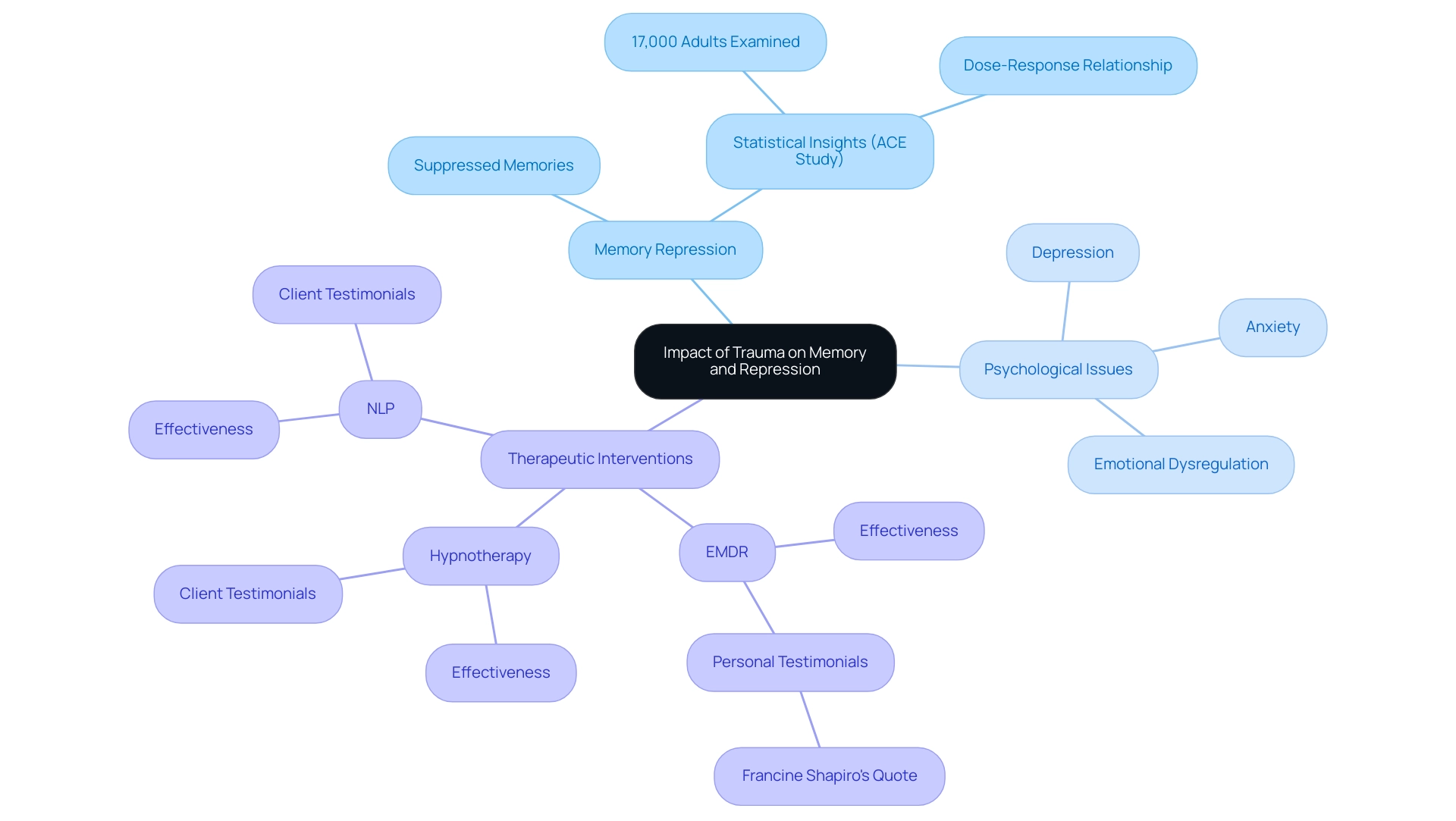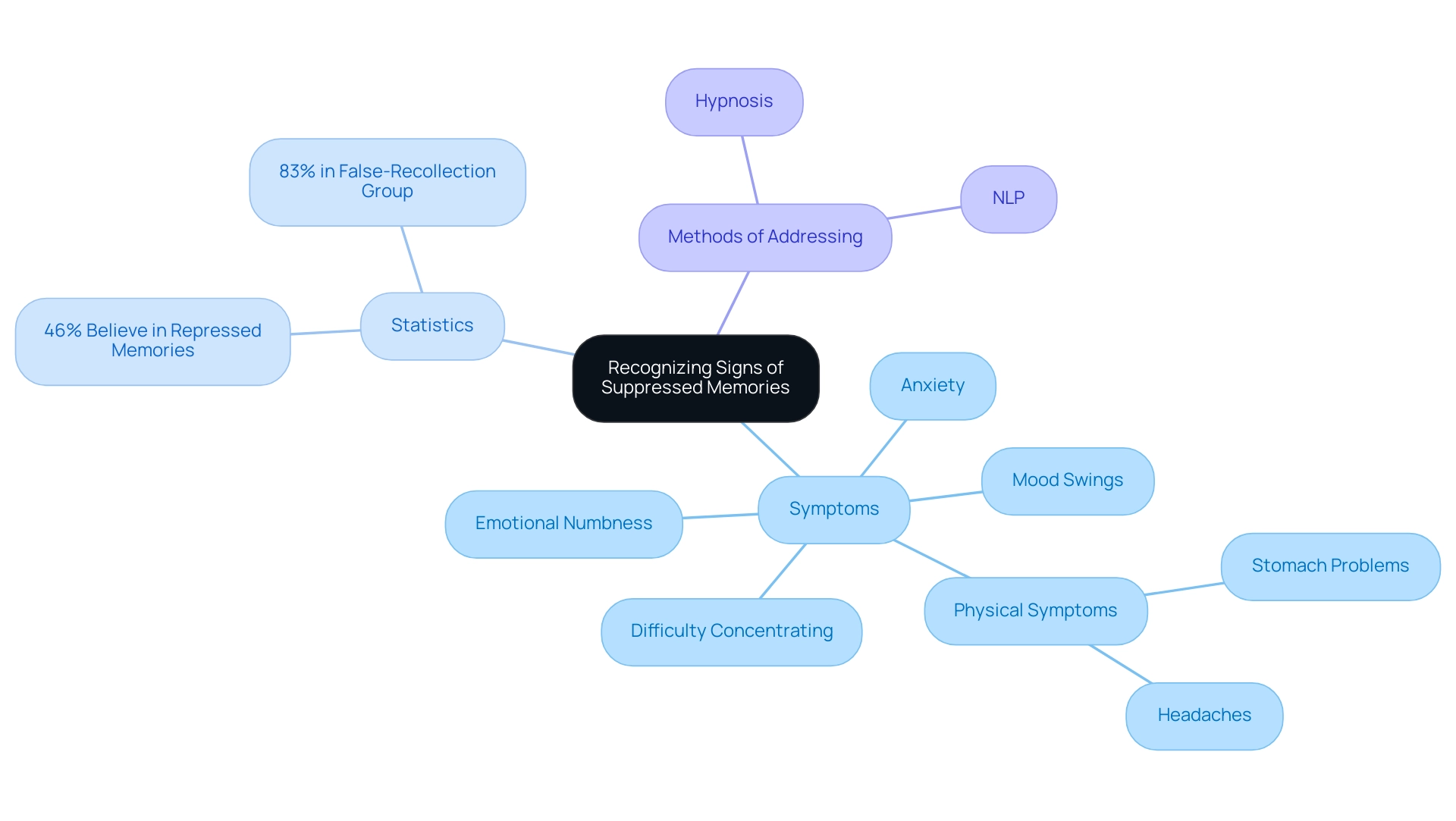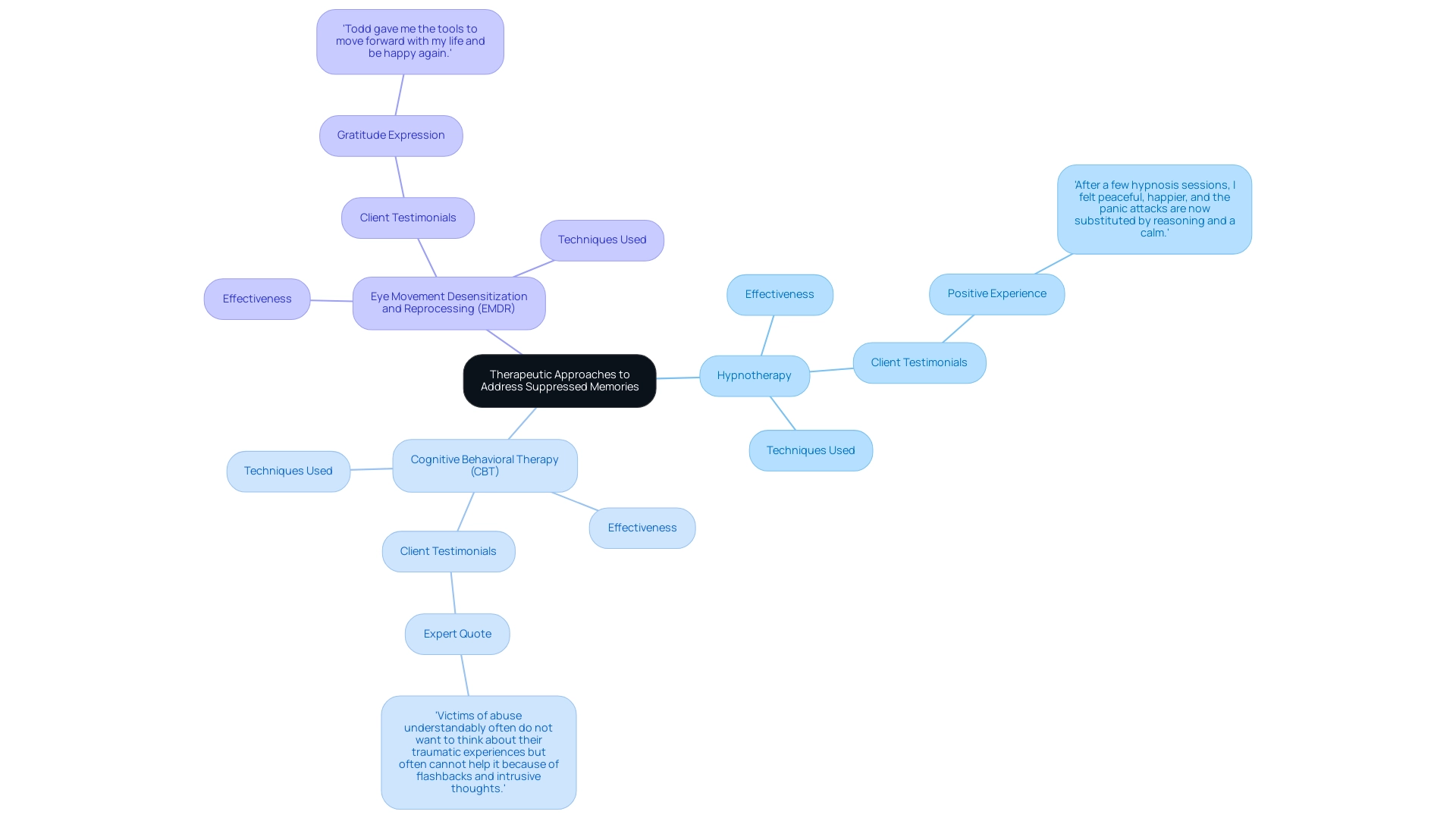PLEASE NOTE:
While the following article relates to your Google search, the services and methods at Goodwin Hypnosis may differ from those mentioned below. Since 2007, we have helped thousands of clients to overcome emotional and behavioral challenges when all else had failed. According to many of them (and their referring healthcare providers), our methods are faster than talk therapy, easier than willpower, and safer than medication. If you’re ready to resolve your issues, skip the article and visit the rest of our website, where you can learn about our unique approach, watch client testimonial videos, and discover how working with us one-on-one could be the solution you’ve been searching for.
We can help you with a variety of issues relating to emotional trauma. While we don't diagnose disorders like PTSD, we have helped hundreds of clients to overcome a wide range of traumatic experiences and their negative effects with methods that are more efficient and comfortable than CBT or EMDR. If you would like to learn more about working with us one-on-one to clear your trauma, click here.
Introduction
In the intricate landscape of trauma and memory, the human mind often employs protective mechanisms to shield itself from overwhelming pain. Suppressed memories, a byproduct of these defense strategies, can significantly impact emotional well-being and daily functioning. As individuals navigate the complexities of their experiences, understanding the nature of these memories and the signs that may indicate their presence becomes essential.
With insights drawn from research and personal testimonies, this article delves into the mechanisms behind suppressed memories, the profound effects of trauma on memory processing, and the therapeutic approaches available for healing. By illuminating these critical aspects, the journey toward recovery and emotional resilience can begin, offering hope and support to those seeking to reclaim their lives.
Understanding the Mechanisms of Suppressed Memories
Repressed recollections frequently emerge from the mind's inherent defense systems, created to shield us from the severe psychological pain linked to traumatic occurrences. This process, referred to as motivated forgetting, enables individuals to push painful recollections out of conscious awareness, facilitating a form of emotional self-preservation. As we explored earlier, low self-worth significantly impacts relationships, careers, finances, and health, highlighting the need for self-belief and self-esteem in achieving a fulfilling life. Notably, 46% of individuals believe in the phenomenon of repressed experiences, illustrating its substantial impact on mental health.
Research by Otgaar et al. (2019) shows that both conscious and unconscious repression are widely recognized, reflecting a common belief in these mechanisms. Experts such as Patihis and associates recognize ongoing discussions regarding this subject, indicating that the conflicts persist due to varying perspectives on repressed recollections and dissociative amnesia.
Case studies documented by the British False Recall Society reveal that therapy can sometimes lead to claims of inaccurate recollections. This observation highlights the necessity for caution when interpreting reports of repressed recollections, reinforcing the importance of exploring these experiences with a trained professional in a safe and supportive environment. For example, Jane's path from compulsive eating to weight reduction demonstrates how reshaping distressing experiences can result in considerable changes in one’s life.
Additionally, the concept of state-dependent remembering plays a crucial role in this context. It implies that recollections might be more reachable when people are in the same feeling or situational condition as when the recollections were created. Comprehending these mechanisms not only offers insight into the nature of repressed experiences but also enables individuals to navigate their situations safely, promoting healing and resilience. The transformative impact of hypnosis, as echoed in personal testimonials, further emphasizes the pathway to emotional well-being and personal growth.

The Impact of Trauma on Memory and Repression
Trauma can profoundly change the way experiences are processed and stored. In an effort to protect itself, the brain may suppress memories of traumatic events, allowing individuals to move forward without the constant reminder of their pain. Unfortunately, this suppression often leads to various psychological issues such as anxiety, depression, and emotional dysregulation.
According to the Adverse Childhood Experiences (ACE) Study, which examined over 17,000 adults, there is a significant dose-response relationship between childhood adversity and the development of multiple risk factors for leading causes of death in adults. This highlights the significance of acknowledging the links between past experiences and current psychological difficulties.
Transitioning to therapeutic interventions, Francine Shapiro, the creator of EMDR therapy, emphasizes the effectiveness of EMDR in addressing psychological distress. She states, ">Twelve randomized studies of the eye movement component noted rapid decreases in negative emotions and/or vividness of disturbing images.<" Additionally, twenty-four randomized controlled trials have shown EMDR therapy to be highly effective in treating psychological trauma, sometimes surpassing the efficacy of trauma-focused cognitive behavioral therapy.
Moreover, effective interventions such as hypnosis and NLP (Neuro-Linguistic Programming) can facilitate the safe retrieval of repressed recollections. Todd and Gina Goodwin, board-certified hypnotists, utilize these approaches to create a supportive environment for individuals to process and integrate their traumatic experiences, promoting emotional healing and recovery. For instance, clients like Amber have shared their empowering journeys of overcoming PTSD and grief through various methods, noting how Gina's innovative techniques helped them find relief. Amber expressed, "I genuinely wish the work with her had been my first course of action, because it would have saved me so much time and unnecessary suffering."
Another client, Brad, discovered that his thirty years of anxiety were rooted in childhood experiences. He stated, "I felt like fear was chasing me, and I've never felt that way since I did the hypnotherapy with Todd. It was incredibly transformative and life changing."
Acknowledging and addressing these deeply buried experiences is a crucial step for those on their journey to healing and well-being. Recent statistics indicate that approximately 70% of trauma survivors experience some form of repression, emphasizing the significance of these therapeutic techniques in addressing their needs.

Recognizing Signs of Suppressed Memories
It's not unusual for individuals to encounter indications that imply the existence of repressed experiences. These signs can manifest as unexplained anxiety or mood swings, making daily life feel unpredictable and challenging. Difficulty concentrating is another common symptom, often accompanied by physical issues like persistent headaches or stomach problems. Many people also report a pervasive sense of unease or emotional numbness, often without a clear understanding of the cause.
Identifying these signs is an essential initial step toward addressing potential repressed experiences. Statistics reveal that 46% of laypersons strongly believe in the existence of repressed memories, highlighting the prevalence of these issues. Mental health experts frequently associate these symptoms with previous traumatic experiences, highlighting the distress they can create.
At Goodwin Hypnosis, we recognize the profound effect of emotional distress on well-being. Our method integrates hypnosis and NLP, specifically tailored to assist clients in effectively processing these experiences and reducing stress. For instance, a study of college students revealed that many individuals who reported anxiety and mood swings also had histories of trauma that they had not fully processed. This corresponds with societal acceptance of repressed recollections, as evidenced by reports from a false-recollection group in Germany, where 83% of alleged victims had received psychotherapy at the time of accusations, indicating the significant impact of these recollections on mental health.
If you resonate with these symptoms, know that you are not alone. Taking the first step toward recovery can be daunting, but reaching out to a mental health professional is essential. By doing so, you can explore and heal from these hidden experiences. Remember, this courageous step is vital in your journey toward well-being. We are here to support you in overcoming internal obstacles and breaking unhealthy habits. Together, we can work towards reclaiming your peace of mind and emotional health.

Therapeutic Approaches to Address Suppressed Memories
Addressing repressed recollections necessitates a variety of therapeutic methods customized to the person's needs. One effective method is hypnotherapy, which helps individuals bypass conscious defenses to access deeper parts of the mind. This technique can be particularly powerful in retrieving repressed recollections within a safe and controlled environment. Clients have reported profound transformations through hypnosis at Goodwin Hypnosis, with many experiencing a significant reduction in anxiety and emotional pain. For instance, one client shared, 'After a few hypnosis sessions, I felt peaceful, happier, and the panic attacks are now substituted by reasoning and a calm.' Recent statistics reveal that approximately 46% of people believe in the existence of repressed memories, emphasizing the importance of effective therapeutic interventions.
Cognitive Behavioral Therapy (CBT) is another valuable approach, assisting individuals in reframing negative thought patterns linked to distress. This method has been frequently promoted by specialists in recovery due to its structured approach and measurable outcomes. As McNally noted, 'victims of abuse understandably often do not want to think about their traumatic experiences but often cannot help it because of flashbacks and intrusive thoughts,' highlighting the necessity of effective therapeutic techniques.
Additionally, Eye Movement Desensitization and Reprocessing (EMDR) has proven highly effective for trauma resolution. This method involves guided eye movements to assist in processing and integrating traumatic experiences, reducing their emotional charge. Clients have expressed gratitude for the support received through these transformative therapies, with one stating, 'Todd gave me the tools to move forward with my life and be happy again.'
It is essential to work with a licensed mental health professional who can develop a personalized treatment plan. This ensures a supportive and nurturing environment, facilitating effective healing. Significantly, recent advancements in therapeutic approaches continue to evolve, with ongoing research promising even more refined techniques for addressing repressed recollections in 2024, such as improved methods in hypnotherapy and the integration of technology in therapy. These updates represent a significant step forward in trauma recovery, allowing for a more comprehensive approach to addressing suppressed memories.

Conclusion
Understanding suppressed memories and their implications is a crucial step toward healing. The article reveals how these memories often emerge from the mind's protective mechanisms, allowing individuals to navigate their lives despite past traumas. While this process of motivated forgetting can provide temporary relief, it may also lead to emotional distress and various psychological challenges, emphasizing the importance of recognizing signs like anxiety, mood swings, and emotional numbness.
Therapeutic approaches such as hypnotherapy, EMDR, and cognitive behavioral therapy offer pathways to address and integrate these buried memories. Each method has shown promise in helping individuals reclaim their emotional health and well-being, demonstrating that healing is possible. The shared experiences of clients highlight the transformative power of these therapies, illustrating that support from trained professionals can facilitate profound change.
Ultimately, acknowledging and confronting suppressed memories is a vital part of the journey toward recovery. By seeking help and exploring these hidden aspects of one's past, individuals can foster resilience and reclaim their lives. It is essential to remember that this journey, while challenging, is filled with hope and the potential for renewed emotional freedom.
Taking that first step toward healing can lead to a brighter, more fulfilling future.




